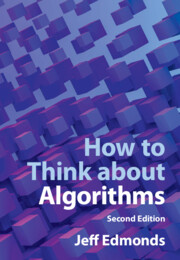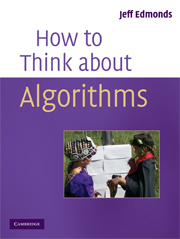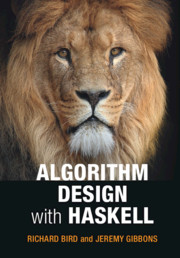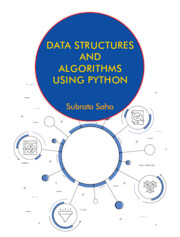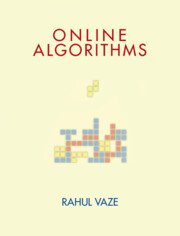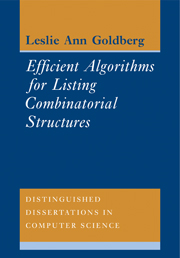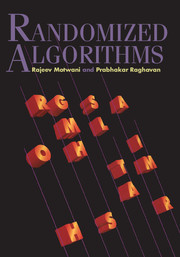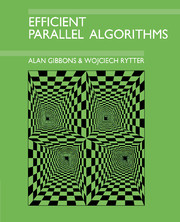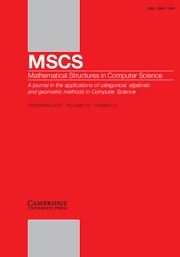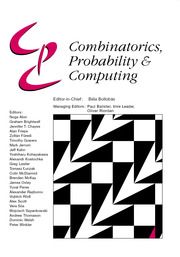How to Think about Algorithms
2nd Edition
£99.99
- Author: Jeff Edmonds, York University, Toronto
- Date Published: March 2024
- availability: In stock
- format: Hardback
- isbn: 9781009302142
£
99.99
Hardback
Other available formats:
Paperback, eBook
Looking for an inspection copy?
This title is not currently available on inspection
-
Understand algorithms and their design with this revised student-friendly textbook. Unlike other algorithms books, this one is approachable, the methods it explains are straightforward, and the insights it provides are numerous and valuable. Without grinding through lots of formal proof, students will benefit from step-by-step methods for developing algorithms, expert guidance on common pitfalls, and an appreciation of the bigger picture. Revised and updated, this second edition includes a new chapter on machine learning algorithms, and concise key concept summaries at the end of each part for quick reference. Also new to this edition are more than 150 new exercises: selected solutions are included to let students check their progress, while a full solutions manual is available online for instructors. No other text explains complex topics such as loop invariants as clearly, helping students to think abstractly and preparing them for creating their own innovative ways to solve problems.
Read more- Includes numerous new exercises, with selected solutions in the text and a full solutions manual for instructors available online
- Presents step-by-step methods for developing algorithms and guides students through common pitfalls, giving students the support they need to design their own algorithms
- Exceptionally clear and approachable and can be used to supplement other, more difficult textbooks
Reviews & endorsements
'Jeff Edmonds' How to Think about Algorithms offers a fresh perspective, placing methodical but intuitive design principles (pre- and post-conditions, invariants, 'transparent' correctness) as the bedrock on which to build and practice algorithmic thinking. The book reads like an epic guided meditation on the vast universe of algorithms, directing the reader's attention to the core of each insight, while stimulating the mind through well-paced examples, playful but concise analogies, and thought-provoking exercises.' Nathan Chenette, Rose-Hulman Institute of Technology
See more reviews'With a good book like this in your hands, learning about algorithms and getting programs to work well will be fun and empowering. Anybody who wants to be a good programmer will get a great deal from this surprisingly readable book. Its approach makes it perfect for reading on your own if you want to enjoy learning about algorithms without being distracted by heavy maths. It has lots of exercises that are worth doing. Most importantly, How to Think about Algorithms does just that: it shows you how to think about algorithms and become a better programmer. Knowing how to think about algorithms gives you the insights and skills to make computers do anything more reliably and faster. The book is also ideal for any taught university course, because it is self-contained and systematically sets out the essential material, but most importantly because it empowers students to think for themselves.' Harold Thimbleby, Swansea University
Customer reviews
Not yet reviewed
Be the first to review
Review was not posted due to profanity
×Product details
- Edition: 2nd Edition
- Date Published: March 2024
- format: Hardback
- isbn: 9781009302142
- length: 464 pages
- dimensions: 251 x 176 x 32 mm
- weight: 1.32kg
- availability: In stock
Table of Contents
Preface
Introduction
Part I. Iterative Algorithms and Loop Invariants:
1. Iterative algorithms: measures of progress and loop invariants
2. Examples using more-of-the-input loop invariant
3. Abstract data types
4. Narrowing the search space: binary search
5. Iterative sorting algorithms
6. Euclid's GCD algorithm
7. The loop invariant for lower bounds
8. Key concepts summary: loop invariants and iterative algorithms
9. Additional exercises: Part I
10. Partial solutions to additional exercises: Part I
Part II. Recursion:
11. Abstractions, techniques, and theory
12. Some simple examples of recursive algorithms
13. Recursion on trees
14. Recursive images
15. Parsing with context-free grammars
16. Key concepts summary: recursion
17. Additional exercises: Part II
18. Partial solutions to additional exercises: Part II
Part III. Optimization Problems:
19. Definition of optimization problems
20. Graph search algorithms
21. Network flows and linear programming
22. Greedy algorithms
23. Recursive backtracking
24. Dynamic programming algorithms
25. Examples of dynamic programming
26. Reductions and NP-completeness
27. Randomized algorithms
28. Key concepts summary: greedy algorithms and dynamic programmings
29. Additional exercises: Part III
30. Partial solutions to additional exercises: Part III
Part IV. Additional Topics:
31. Existential and universal quantifiers
32. Time complexity
33. Logarithms and exponentials
34. Asymptotic growth
35. Adding-made-easy approximations
36. Recurrence relations
37. A formal proof of correctness
38. Additional exercises: Part IV
39. Partial solutions to additional exercises: Part IV
Exercise Solutions
Conclusion
Index.
Sorry, this resource is locked
Please register or sign in to request access. If you are having problems accessing these resources please email [email protected]
Register Sign in» Proceed
You are now leaving the Cambridge University Press website. Your eBook purchase and download will be completed by our partner www.ebooks.com. Please see the permission section of the www.ebooks.com catalogue page for details of the print & copy limits on our eBooks.
Continue ×Are you sure you want to delete your account?
This cannot be undone.
Thank you for your feedback which will help us improve our service.
If you requested a response, we will make sure to get back to you shortly.
×
